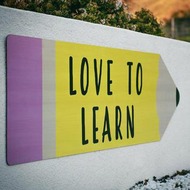(View Complete Item Description)
This series of units will walk us through thinking organizers, reflective activities, and a protocol that could be used as a starting point for taking a deeper look at the ways in which our assessments of students may contain unconscious bias. Why Rubrics? This series focuses on classroom, rather than standardized, assessments. The pedagogical approaches to teaching and learning that are grounded in using rubrics tend to be simultaneously the most (potentially) engaging for students and most vulnerable to subjectivity in "scoring" by teachers. Since rubrics are most commonly utilized to score student products and performances, in contrast to multiple choice or fill-in assessments, there is a higher likelihood of cultural, linguistic, and ableist biases to be present in both the scoring instrument (rubric) and the scoring process.
Material Type:
Activity/Lab,
Reading
Author:
Lara Ervin-Kassab




















